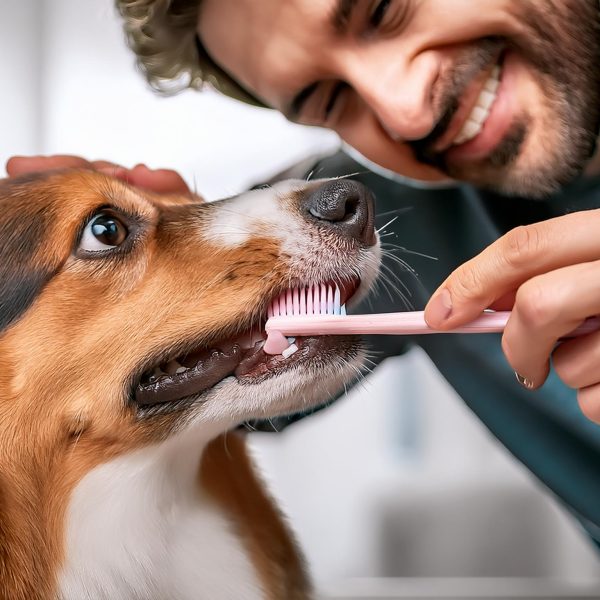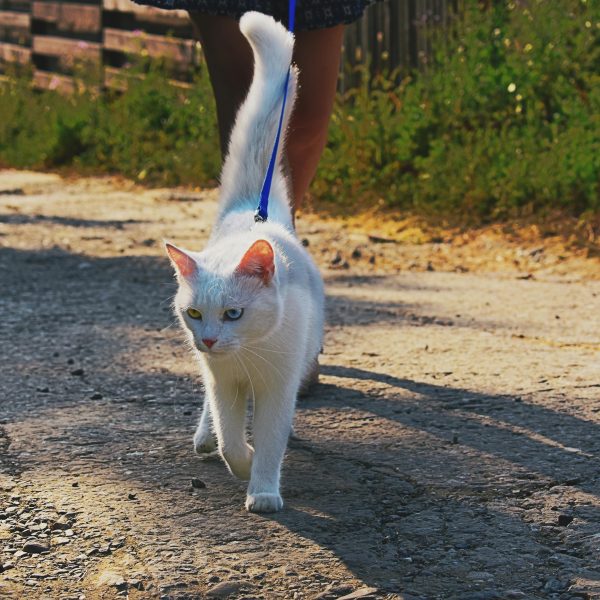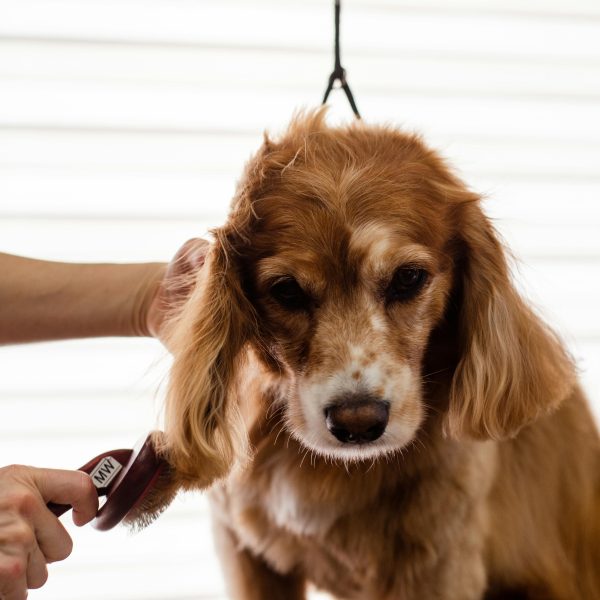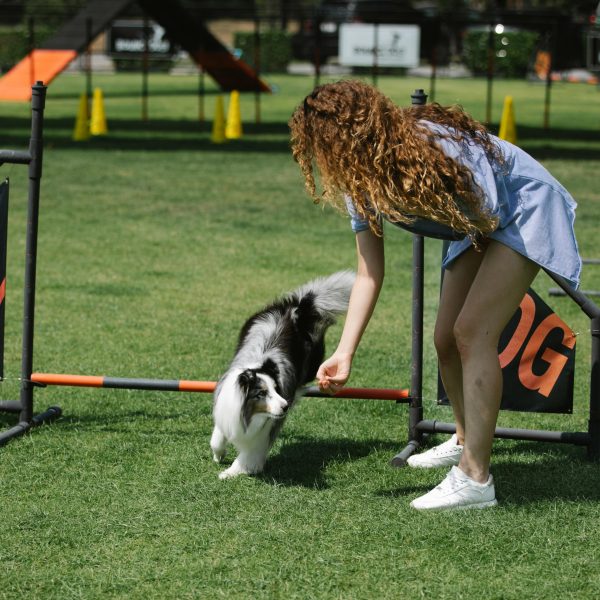Our pets, regardless of their fur, feathers, or scales, hold a cherished place in our hearts and families. As they gracefully age, it becomes paramount to provide them with the attention and care they deserve to ensure a happy and fulfilling life during their senior years. In this comprehensive guide, we will delve into the specific factors and challenges associated with taking care of senior pets, both dogs and cats.
Understanding How Pets Age
As our pets enter their golden years, they undergo physiological changes that necessitate adjustments in their care routines. While the aging process can vary among species and breeds, there are common considerations applicable to both dogs and cats:
1. Slower Metabolism
Senior pets often experience a decrease in metabolism, which can lead to weight gain. It’s crucial to adjust their diet to match their reduced energy requirements.
2. Joint and Mobility Concerns
Arthritis and joint problems become more prevalent as pets age. Providing supplements, tailored exercise routines, and comfortable bedding arrangements can help alleviate these issues.
3. Oral Health Matters
Dental problems tend to worsen with age, causing discomfort while eating. Regular dental check-ups and proper dental care play a vital role in the overall well-being of senior pets.
4. Diminished Senses
Aging may result in reduced hearing or vision capabilities for our furry friends. It is crucial to create an environment that offers support, including tactile cues. Cognitive dysfunction syndrome, akin to dementia in humans, may result in behavioral changes and confusion, indicating cognitive decline. Additionally, older pets may have weakened immune systems, making them more susceptible to infections and diseases.
Tailoring Nutrition for Senior Pets
Proper nutrition is fundamental to senior pet care. Adjusting their diet to meet their changing needs is essential:
1. Specialized Senior Diets
Many pet food brands offer formulations specifically designed for seniors, addressing concerns such as joint health, weight management, and digestive issues.
2. Weight Management
Monitoring your senior pet’s weight and adjusting their calorie intake can help prevent weight gain, which can exacerbate age-related problems.
3. Joint Supplements
To support health and alleviate arthritis symptoms in aging pets, consider incorporating supplements that contain glucosamine and chondroitin into their diet.
4. Hydration
Seniors may be prone to dehydration, so ensure they have access to water at all times. Including moistened food options can contribute to their overall hydration.
Addressing Mobility Challenges
Joint and mobility issues are common in aging pets. Here are some ways you can provide support:
1. Ensuring the Comfort of Older Pets
a. Bedding
Providing orthopedic beds or cushions can enhance the comfort of senior pets, alleviating pressure and making resting more enjoyable.
b. Gentle Exercise
Designing exercise routines tailored to your pet’s limitations is crucial. Opt for low-impact activities, such as short walks and gentle play sessions, to help maintain mobility without putting strain on their joints.
c. Regular Veterinary Check-ups
Regular check-ups with your veterinarian are essential for assessing your pet’s health, administering any medications, and addressing emerging issues promptly.
Promoting Dental Health in Senior Pets
Dental health is crucial for senior pets, and regular care can prevent issues such as periodontal disease:
1. Professional Dental Cleanings
Scheduling cleanings for your senior pet with a veterinarian is crucial to tackle tartar buildup and prevent dental diseases effectively.
2. At-Home Dental Care
Consistently brushing your pet’s teeth and providing dental chews or toys can significantly contribute to their oral health maintenance.
3. Dietary Considerations
Opting for foods that offer dental benefits can promote chewing and reduce tartar accumulation, benefiting their overall oral health.
Supporting Cognitive Health and Mental Stimulation
Cognitive dysfunction in aging pets can lead to changes and confusion; however, there are strategies you can implement to support their well-being:
1. Interactive Toys
Providing toys that stimulate engagement will help keep your pet’s mind active and stimulated throughout their daily routine.
2. Establishing a Routine
Maintaining a routine can bring a sense of security and alleviate anxiety in older pets. It’s important to consult with your veterinarian if you notice changes in behavior, as they can provide guidance and suggest strategies to support your pet’s health.
3. Regular Veterinary Check-ups
Regular check-ups become more crucial for senior pets, allowing proactive management of potential health issues. Thorough physical examinations are essential for identifying age-related concerns such as lumps, bumps, or changes in organ function. Diagnostic tests like bloodwork and urinalysis can offer insights into your pet’s overall health and help detect any potential problems early on.
4. Discussion about Lifestyle Changes
As your pet ages, discussing any changes in behavior, appetite, or mobility with your veterinarian is necessary to make lifestyle adjustments. Keeping vaccinations up to date and prioritizing care measures are vital for the well-being of pets.
Special Considerations for Senior Cats
Senior cat care comes with its own set of considerations:
1. Weight Management
Managing weight becomes an important consideration when caring for senior cats. Providing a balanced diet and encouraging exercise can help effectively manage weight concerns that often arise in cats.
2. Maintaining Kidney Health
It’s crucial to keep an eye on the kidney health of cats. Regularly monitoring their condition and making adjustments to their diet can help support their kidneys.
3. Taking Care of Dental Health
As cats age, dental issues tend to become more common. To maintain health, it’s essential to schedule dental check-ups and consider offering softer food options.
4. Raising Awareness about Arthritis
Arthritis can have an impact on the mobility of cats. Creating an environment for them and ensuring access to resources like ramps or steps can be beneficial in managing this condition.
Tailoring Senior Dog Care based on Breed
Different dog breeds may have unique considerations as they enter their senior years:
1. For Large Breeds
Large breeds are often prone to joint issues. Paying attention to weight management and incorporating supplements into their care routine becomes crucial.
2. For Small Breeds
Small breeds may be more susceptible to dental issues. Regular dental care and monitoring for any signs of diseases are vital for their well-being.
3. For Breeds Prone to Cognitive Issues
Certain breeds are predisposed to cognitive dysfunction as they age. Providing stimulation and support can help them overcome these challenges.
Overcoming Challenges in Senior Pet Care
1. Considering Finances
It’s important to include expenses in your budget when caring for senior pets. Exploring insurance options can also help manage costs.
2. Creating an Aging-Friendly Home Environment
Adapting your home environment by adding ramps or stairs for accessing elevated areas and using non-slip flooring can make it easier for senior pets to navigate comfortably.
3. Supporting the Emotional Well-being
Make sure to spend quality time with your pet, offering them comfort and reassurance. It’s essential to address any anxiety or fear they may have for their happiness.
4. Taking Care of Their Diet
Consult your veterinarian to select the senior pet food and any necessary supplements. They can guide you in providing the nutrition for your friend as they age.
5. Managing Pain
If your senior pet is dealing with arthritis or other painful conditions, it’s crucial to work with your veterinarian to effectively manage their discomfort. Together, you can find solutions that bring them relief.
Caring for pets demands dedication, attentiveness, and a proactive approach to meet their evolving needs. By understanding the considerations for aging dogs and cats, pet owners can ensure that their beloved companions enjoy a satisfying life during their senior years. Regular visits to the vet, a customized nutrition plan, and creating a home environment are factors in providing exceptional care for our aging furry friends.








